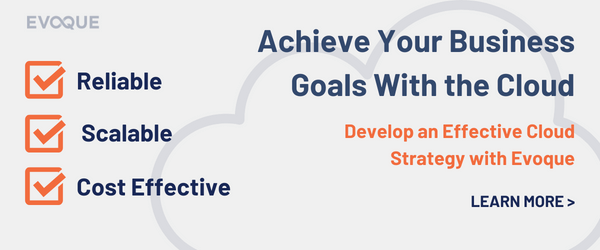March 23
Successful organizations understand the importance of having a flexible IT infrastructure to manage application workloads and adapt to changes. Evaluating strategies for scalability helps them balance current needs against future goals and ensure that their available technology resources are always up to the challenge, no matter where they’re deployed. Increasingly, hybrid environments that incorporate traditional colocation services with cloud computing capabilities are emerging as the most effective solution for today’s dynamic application workloads.
In part one of this two-part series, we showed how scalability is essential to your IT strategy and looked at the technical benefits (and drawbacks) of the two primary models for scaling capacity. In part two, we’ll focus on how choosing the right infrastructure partner can help you maximize your growth potential while minimizing downtime, performance, and security risks.
Scaling in a Colocation Environment
Organizations can use both horizontal and vertical scaling strategies to improve the performance and capacity of their IT deployment in a colocation data center. Since horizontal scaling involves adding more servers to a deployment in order to handle larger workloads and distribute the processing across multiple resources, colocation customers can either purchase new equipment or lease hardware from their provider. Remote hands services make it easier to integrate and manage those resources, taking much of the operational burden off the hands of IT departments. However, adding new assets to a deployment will increase power, cooling, and bandwidth requirements, which will also increase colocation costs.
Vertical scaling involves upgrading the capacity of a single server, allowing businesses to handle more workload without needing to add more resources. Since colocation customers still own the hardware they’ve migrated into the data center, they have the ability to upgrade those assets as the need arises. If an organization needs to add RAM or upgrade CPUs to handle the performance requirements of a new application, for instance, they can easily access their equipment to do so. While this strategy usually won’t increase their colocation costs, they will need to carefully plan for hardware improvements, as they may involve downtime during the upgrade process.
Scaling in a Cloud Environment
Cloud computing environments rely heavily upon horizontal scaling to increase flexibility and handle greater workloads. Organizations can easily provision and deploy additional virtual machines (VMs) from their cloud provider on-demand to handle increased demand. This allows cloud customers to scale up their infrastructure quickly as their workloads increase, all without needing to invest in expensive hardware. Horizontal cloud scaling also makes it possible for companies to distribute their infrastructure across multiple regions, improving fault tolerance and reducing the risk of data loss.
Unlike its on-premises counterpart, horizontal scaling in the cloud also increases flexibility by allowing organizations to quickly respond to changes in demand or business requirements. They can even scale their capacity down when necessary, since their additional resources are delivered via the cloud provider’s infrastructure. Horizontal scaling leverages the pay-as-you-go pricing models used by most cloud providers, allowing customers to only pay for the resources they use rather than investing in expensive hardware that may not be fully utilized. This unique flexibility is partly what makes cloud computing such a cost-effective solution for organizations looking to scale in the future.
Much like its on-premises equivalent, vertical scaling in a cloud environment involves upgrading the capacity of a single virtual machine (VM) or instance, allowing businesses to handle more workload without needing to add more resources. This approach is sometimes referred to as “right-sizing” because it optimizes existing cloud resources to workload demands. While this is generally faster and easier to deploy in a cloud environment, it comes with risks of downtime while the upgraded VM is deployed. More importantly, if workload demands decrease unexpectedly, organizations can end up paying for cloud resources their upgraded machine is not using.
In general, horizontal scaling tends to be a better long term strategy for cloud deployments because it makes the infrastructure more resilient, flexible, and cost-effective. It allows businesses to distribute their workload across multiple virtual machines, add or remove resources as needed, and only pay for what they use. This means they can be more responsive to changes in demand, optimize their resource utilization, and reduce costs in the long run.
Maximizing Scalability and Flexibility in a Hybrid IT Environment
A hybrid IT environment that combines one or more cloud computing platforms with colocated servers in a third-party data center offers the best of both worlds for businesses. By leveraging both horizontal and vertical scaling strategies, organizations can maximize their workload flexibility and scalability. Cloud resources can be easily scaled horizontally to handle increased demand, while colocated servers can be scaled vertically to keep pace with evolving IT environments.
Of course, organizations can still use both scaling strategies in each environment when the need arises. It’s not uncommon for cloud customers to vertically scale some of their VMs to support application development or to launch new services, for instance. And if it ever becomes necessary to add capacity within the data center, colocation customers can either purchase or lease new servers to support their deployment.
How Hybrid IT Leverages the Best of Colocation and Cloud Computing
Although colocation and cloud services are often treated as “either/or” competitors, successful hybrid IT deployments incorporate the unique advantages of both. By diversifying their infrastructure and placing key workloads in environments best suited to their requirements, organizations can improve performance without locking themselves into a strategy that limits their future growth.
Colocation data centers provide a better home for mission critical data and legacy applications due to their outstanding uptime and security. With superior uptime guarantees and infrastructure redundancies, colocation providers ensure that businesses experience minimal disruptions and have access to their critical data at all times. Moreover, colocation facilities implement state-of-the-art security measures to safeguard against unauthorized access, physical theft, and environmental threats, including 24x7x365 surveillance, multi factor authentication (MFA), and strict access policies. The robust infrastructure and professional management offered by colocation providers ensure that businesses can keep their mission-critical data and applications safe and secure, while also being able to meet compliance requirements such as HIPAA, PCI DSS, and SOC 2.
Cloud computing, on the other hand, is an ideal solution for organizations with expanding technology needs due to its flexibility, cost savings, and scalable infrastructure. Thanks to streamlined horizontal and vertical scaling capabilities, cloud customers can adjust capacity without the need for significant capital investments or time-consuming hardware deployments. This provides significant cost savings compared to traditional on-premises infrastructure, which struggles to balance resource utilization effectively and are frequently over or under-provisioned. Cloud services also make it easy to access applications and data from any location with an internet connection, which is especially beneficial for remote teams and work-from-home policies.
A hybrid approach allows businesses to take advantage of the benefits of cloud computing, such as rapid scalability and cost savings, while also retaining control over their legacy and mission critical workloads hosted on colocated servers. Combining horizontal and vertical scaling strategies provides IT teams with a highly flexible and scalable infrastructure that can adapt to changing business needs over time and remove constraints on growth without compromising reliability, performance, or security.
Choosing the Right Colocation Partner for Your Hybrid Infrastructure
The key to implementing a complex and agile hybrid IT environment is finding a colocation partner with the right combination of data center and cloud engineering expertise to support your digital transformation goals. While many colocation providers are set up to migrate and manage customer assets within their data center, they often lack the necessary experience to help organizations plan, build, and manage cloud infrastructure on the same scale.
Evoque Data Center Solutions offers a unique blend of colocation and cloud engineering services that puts the needs of your application workloads above all other considerations. Rather than imposing a “one-size-fits-all” solution on every colocation customer, we take a strategic approach that optimizes each deployment to maximize application performance and data availability. With our team’s guidance and support, you can build a dynamic hybrid environment that allows you to scale capacity horizontally within the cloud and vertically within our state-of-the-art data centers as your business needs continue to evolve.
And thanks to our unique SpendAgility feature, you’ll be able to take full advantage of hybrid flexibility throughout your colocation contract. Shift your spending and your application workloads to wherever they’re needed without penalties or restrictions. In a world where consumer demands and workload requirements are constantly shifting, SpendAgility allows you to adapt your IT strategy right away to take advantage of new opportunities rather than forcing you to renegotiate your contract or wait until it’s time for renewal.
To learn more about Evoque’s innovative combination of data center and cloud engineering services can help you scale your IT capacity more effectively, talk to one of our colocation experts today.




